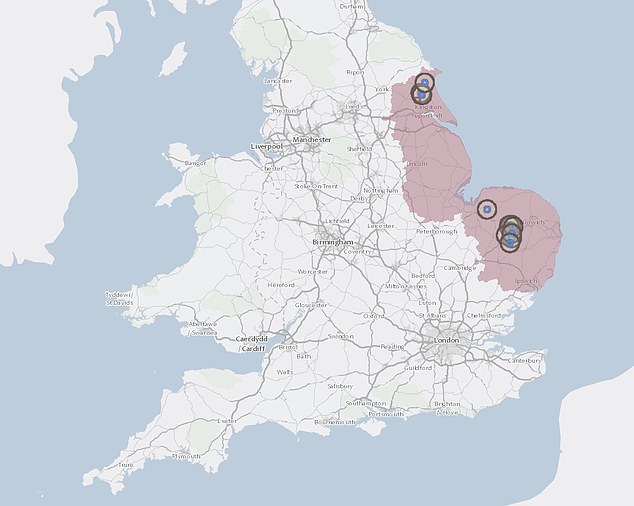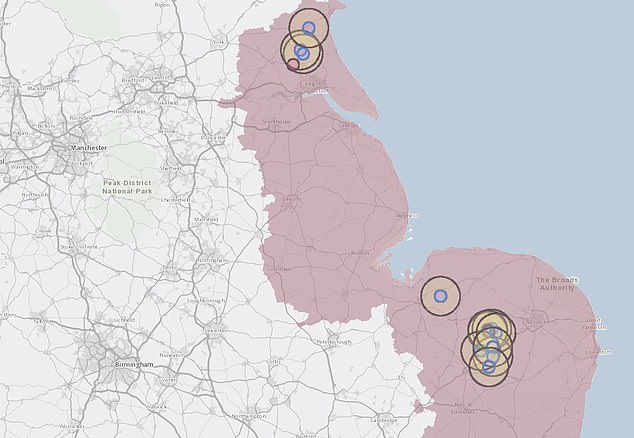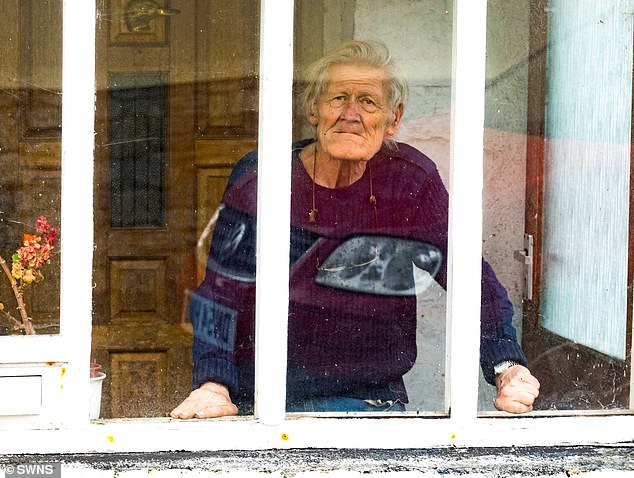Warning of new bird flu outbreak in Yorkshire – as experts say virus could soon cause ‘next pandemic’
Another bird flu alert has been issued in England after an outbreak of the virus was discovered in East Yorkshire.
The latest incident, in Nafferton, East Riding of Yorkshire, is the sixteenth incident discovered in Britain this year.
Government officials have established a 3 km and 10 km protection and surveillance zone around the area, restricting the movement of birds such as chickens and poultry products such as meat and eggs in the area.
All birds on the site of the new outbreak will be culled, officials added.
It comes as experts warned that the virus, which spreads through the droppings and saliva of wild and domestic birds, as well as through contaminated food and water, could jump to humans, leading to a new pandemic.
However, the current risk is considered low as cases of bird-to-human infection are rare.
But experts are concerned about the current bird flu spreading worldwide, with several cases making the jump to humans.
This includes 66 people diagnosed with the virus in the US, in cases believed to be linked to contact with infected poultry or from drinking unpasteurized milk from sick livestock.
Another bird flu alert has been issued in England after an outbreak of the virus was discovered in East Yorkshire. Stock image

This map, from the government’s Animal and Plant Health Agency, shows the areas under bird flu restrictions

The blue rings on the map represent the 3 km protection zones and the yellow rings the 10 km surveillance zones. The shaded burgundy area represents an ‘avian flu protection zone’, where people with birds are asked to take measures to protect their flocks from wild birds that could carry the virus, by housing them in indoor enclosures if possible.

Alan Gosling (pictured), a retired engineer in Devon, contracted bird flu after his ducks, some of which lived in his house, became infected in 2022
Meanwhile, a Mexican man died after contracting the virus last year.
It is unknown how the 59-year-old, who had health complications and died in April, came into contact with the pathogen.
He was reported to have developed fever, shortness of breath, diarrhea and nausea.
There have been no examples of human-to-human transmission so far, although some studies suggest the virus is just a mutation away from having this capacity.
The latest outbreak in Yorkshire comes after a series of other cases in England last month.
Poultry from three sites have been identified in Beverley, East Riding of Yorkshire, the last being found on December 28.
Other outbreaks have been reported around Norfolk, Kingston upon Hull and Suffolk, some involving turkeys destined for Christmas dinner tables.
The wave of outbreaks comes just months after a panel of British government Experts said ongoing infections in US livestock had increased the risk of human-to-human transmission by up to 35 percent, compared to just five percent previously.
They also warned that Britain will have to step up surveillance efforts from September when birds from the US cross the Atlantic Ocean as part of their annual migrations, potentially bringing the virus with them.
Independent experts have told MailOnline that the threat of a new pandemic caused by bird flu is low but ‘cannot be ruled out’ as a possibility.
Weeks ago, Britain’s Health Security Agency announced it had purchased 5 million doses of a human H5 flu vaccine in preparation for a possible avian flu pandemic.
Although no new human cases of H5N1 have been discovered in Britain as part of the current wave of outbreaks, Britain has seen people infected before.
Alan Gosling, a retired engineer in Devon who kept ducks at home, contracted the virus in early 2022 after his pets became infected.
He later tested negative while in quarantine for nearly three weeks.
